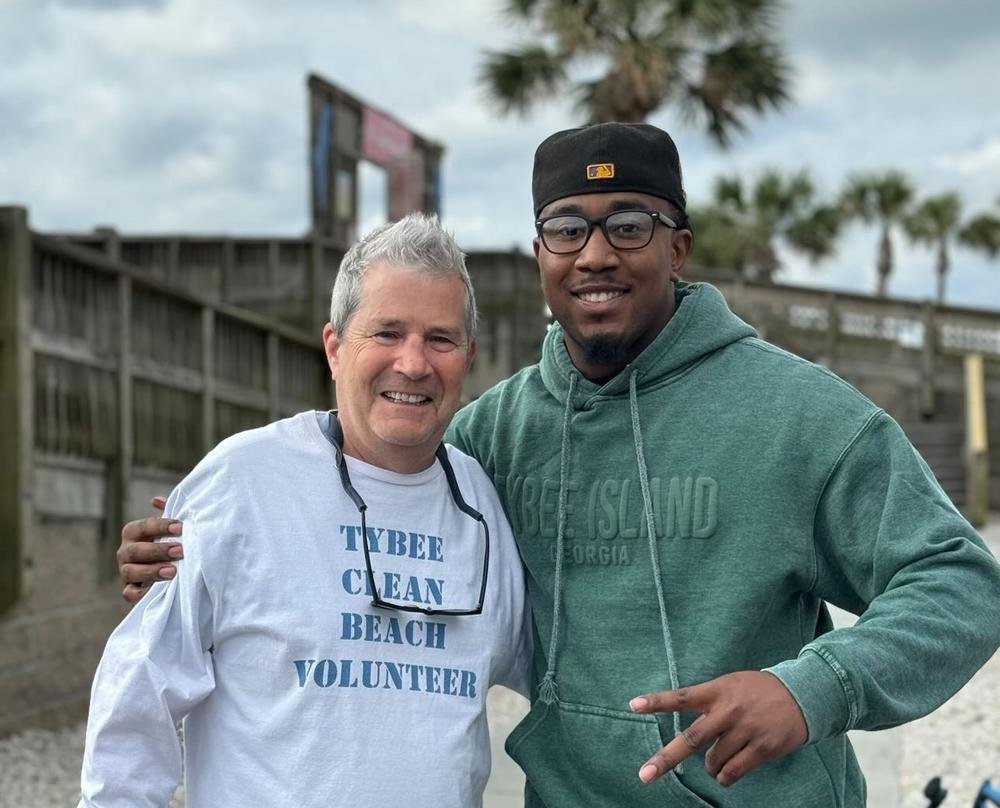HURRICANE PLANNING & politics
by BEN ADAMS
Hurricane Planning. & ALERTS Cheat Sheet: Savannah, Tybee Island & the Low Country
⸻
1. Monitoring & Alerts
• Stay Informed:
• National Hurricane Center (NHC) forecasts: www.nhc.noaa.gov
• Georgia Emergency Management & Homeland Security Agency (GEMA/HS) alerts: ema.ga.gov
• Local news (WSAV, WTOC) and City of Tybee social media for real-time updates.
• Sign Up for Warnings:
• Chatham County Alert System: Text “Savannah” to 888777 (alerts).
• Tybee Island ReadyAlert: www.tybeeisland‐ga.gov/emergency
⸻
2. Evacuation Zones & Routes
• Chatham County Zones:
• Zone A (High‐Risk Coastal Areas): Barrier islands (Tybee, Wilmington).
• Zone B & C (Inland Floodplains): Savannah’s riverside neighborhoods.
• Official Evacuation Routes:
• Tybee Island: US-80 (Tybee Road) westbound toward Savannah.
• Savannah Coastal: GA-204 (Bee Road) north to I-95; I-16 west to I-75 (inland shelters).
• Low Country Inland Options: US-17 north toward South Carolina or west via I-95.
• “Know Your Zone” Lookup: www.gema.georgia.gov/evacuation‐routes
⸻
3. Shelter & Safe Locations
• Local Shelters (Overnight Capable):
• Tybee Island Community Center: 1513 Strand Avenue (Zone A evacuees).
• Sugar Hill Elementary (Savannah): YEAR‐ROUND shelter.
• Holly Bald Primary School (Effingham County): For Zone B/C overflow.
• Pets & Service Animals:
• Chatham County Animal Services Pet-Friendly Shelters: Bring carriers, food, paperwork.
• Check “No Animal Left Behind” locations: chathamcounty.org/animal
⸻
4. Home & Property Prep
• Hurricane “Go‐Bag”:
• 72‐hour supply of water (1 gallon/person/day) and nonperishable food.
• Battery‐powered radio, flashlights, extra batteries.
• First‐aid kit, personal medications (7+ day supply).
• Copies of critical documents (ID, insurance, medical records) in a waterproof pouch.
• Cash (ATMs/power might be down).
• Storm‐Proofing Your Home:
• Doors & Windows: Install storm shutters or pre-cut plywood (measure in advance).
• Roof & Gutters: Clear debris; secure loose roofing materials.
• Yard Cleanup: Bring in patio furniture, trash cans, potted plants.
• Sandbags: Available at police stations or public works; use along doorways/low openings.
• Elevate Valuables & Electronics:
• Move antiques, documents, and electronics to higher floors or shelves above flood level.
⸻
5. Vehicle & Fuel
• Fuel Up Early:
• Pre‐hurricane storm: Fill gas tank; fill extra jerry cans (approved containers).
• Evacuation Vehicle Checklist:
• Spare tire, jack, and tools.
• Jumper cables, roadside emergency kit, reflective triangles.
• Map/GPS with preplanned route (cell service may be unreliable).
• Parking Safety:
• Park on high ground; avoid low‐lying areas prone to flooding.
⸻
6. Communication Plan
• Family/Household Plan:
• Identify a central out-of-area emergency contact.
• Agree on meeting locations (primary: home if safe; secondary: designated friend or shelter).
• Local Contacts & Numbers:
• Savannah Fire & EMS (Non‐Emergency): (912) 651-6700
• Chatham County EMA Hotline: (912) 201-4500
• Tybee Island PD (Non‐Emergency): (912) 786-5421
• Campus & School Alerts:
• Register for HBCU text/email emergency alerts (SSU, SCAD, Savannah Tech).
⸻
7. Special Considerations
• Elderly & Disabled:
• Register for Chatham County “Special Needs Registry” (912) 644-5300.
• Coordinate medical transport or accessible shelter options early.
• Medical Equipment & Oxygen:
• Secure a backup power source (battery or generator).
• Refill prescriptions, coordinate with pharmacy for early refills.
• Business Continuity:
• Back up critical data off‐site or in cloud storage.
• Create a checklist: shut off utilities, secure files, notify clients.
⸻
8. Flood & Surge Prep
• Understand Risks:
• Storm Surge: Barrier islands (Tybee) at highest risk—seek immediate evacuation orders.
• River Flooding: Savannah River floodplain neighborhoods—monitor river gauges (USGS).
• Sandbag Locations:
• Tybee Public Works Garage (1748 Butler Avenue)
• Chatham County Public Works (E 66th Street, Savannah)
• Elevate Utilities:
• Raise HVAC units, electrical panels, and water heaters above base flood elevation.
⸻
9. Post‐Storm Recovery
• Safety First:
• Avoid floodwaters (downed power lines, contamination).
• Use a flashlight—not candles—to inspect damaged areas.
• Damage Reporting & Assistance:
• County Damage Assessment Hotline: (912) 201-4500
• SMALL Business Administration (SBA) Disaster Loans: Apply online at sba.gov
• FEMA Registration: Visit disasterassistance.gov or call 1-800-621-FEMA
• Cleanup & Repairs:
• Document damage with photos and receipts for insurance.
• Hire licensed contractors; verify credentials with Georgia State Licensing Board.
⸻
10. Key Resources & Links
• Chatham County EMA: ema.chathamcountyga.gov
• Tybee Island Emergency Management: tybeeisland-ga.gov/emergency
• Savannah‐Hinesville NWS Forecast: weather.gov/chs
• Georgia Road Conditions: 511ga.org
• FEMA Disaster Assistance: disasterassistance.gov
⸻
Keep this cheat sheet handy before, during, and after a hurricane.
Preparation and clear communication are your best defenses. Stay safe, and coordinate closely with local authorities.
HURRICANE PLANNING
by
BEN ADAMS
BEN ADAMS
It all begins with an idea. Maybe you want to launch a business. Maybe you want to turn a hobby into something more. Or maybe you have a creative project to share with the world. Whatever it is, the way you tell your story online can make all the difference.


Make it stand out.
It all begins with an idea. Maybe you want to launch a business. Maybe you want to turn a hobby into something more. Or maybe you have a creative project to share with the world. Whatever it is, the way you tell your story online can make all the difference.


